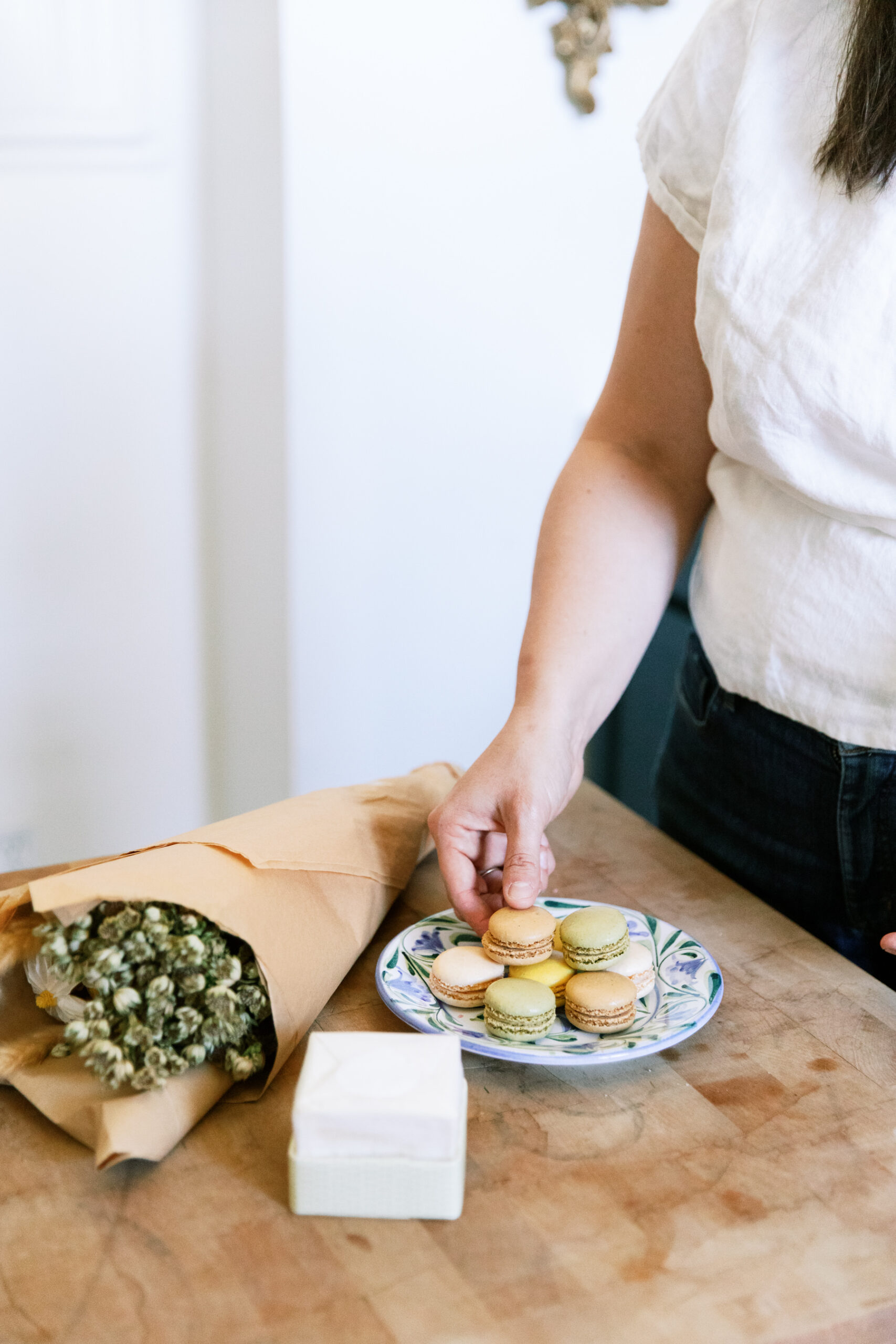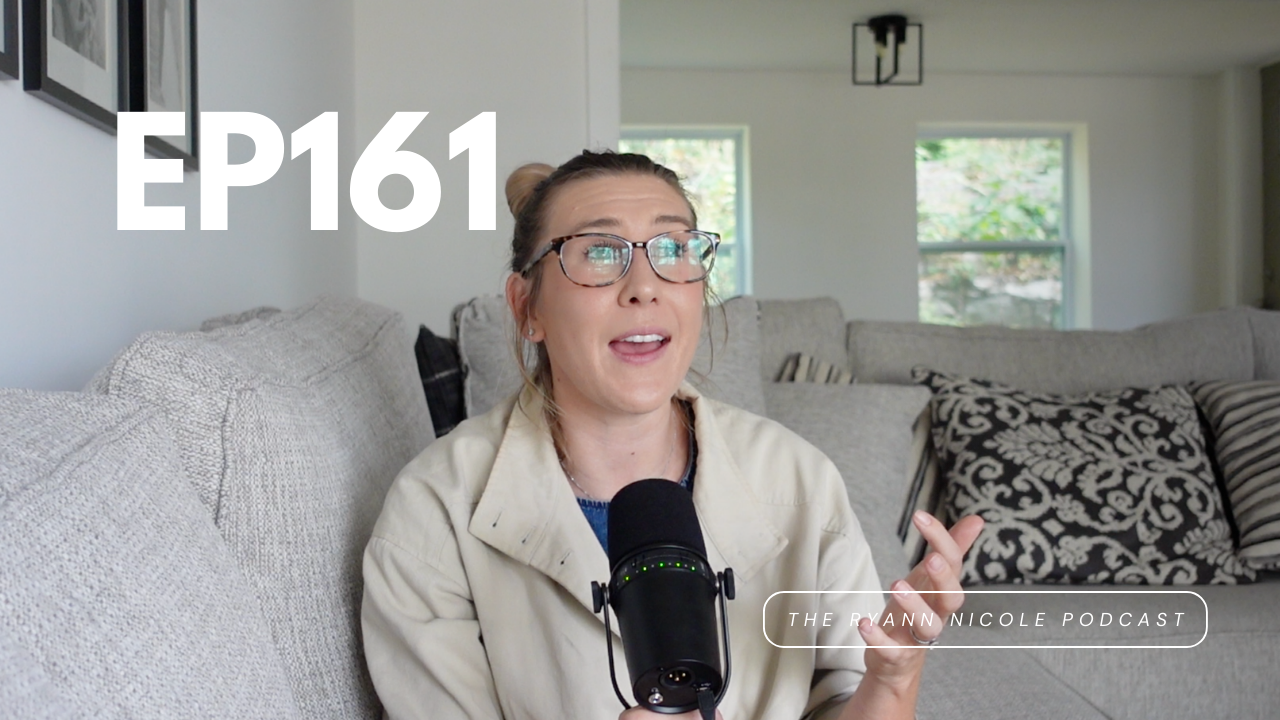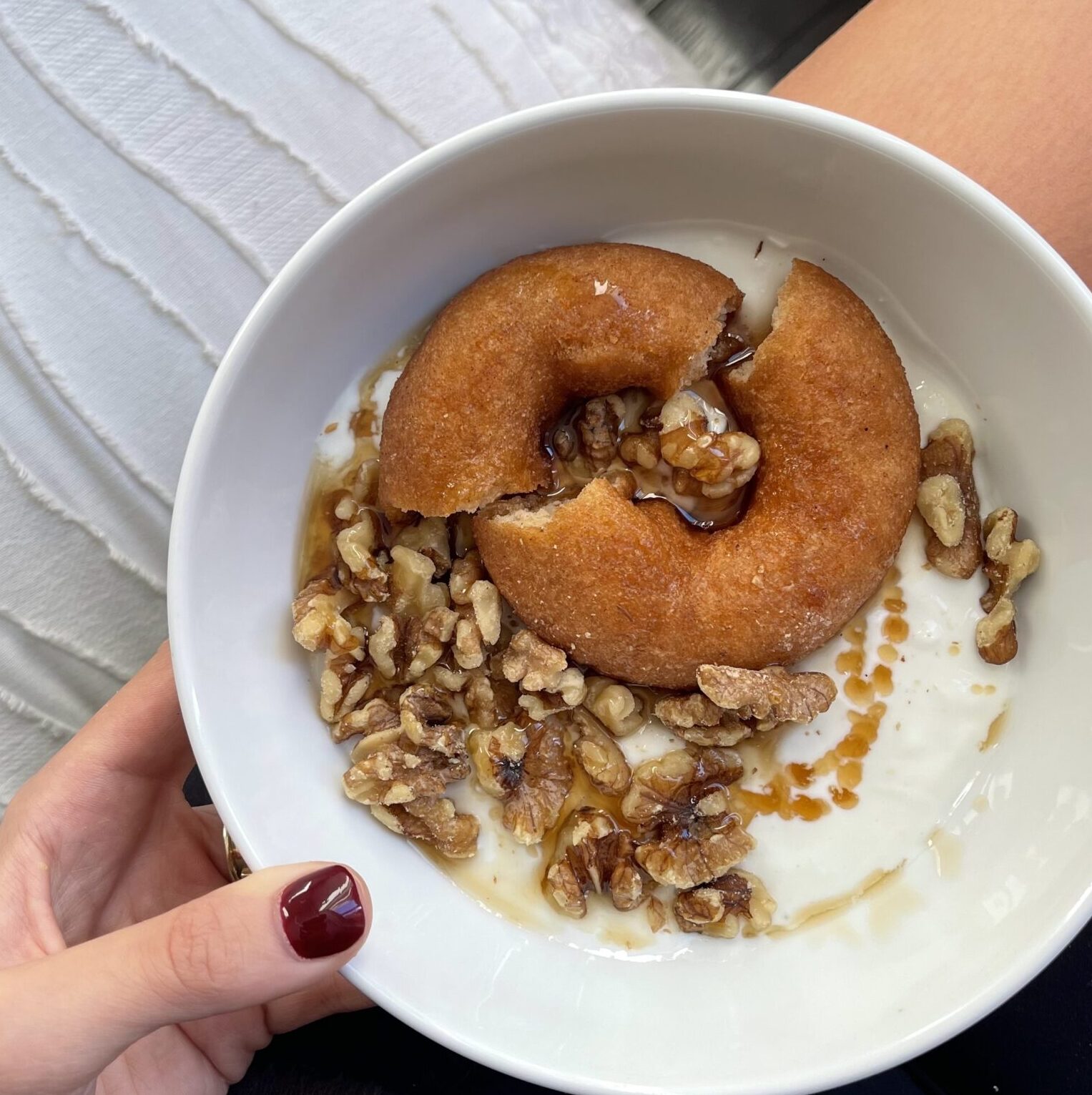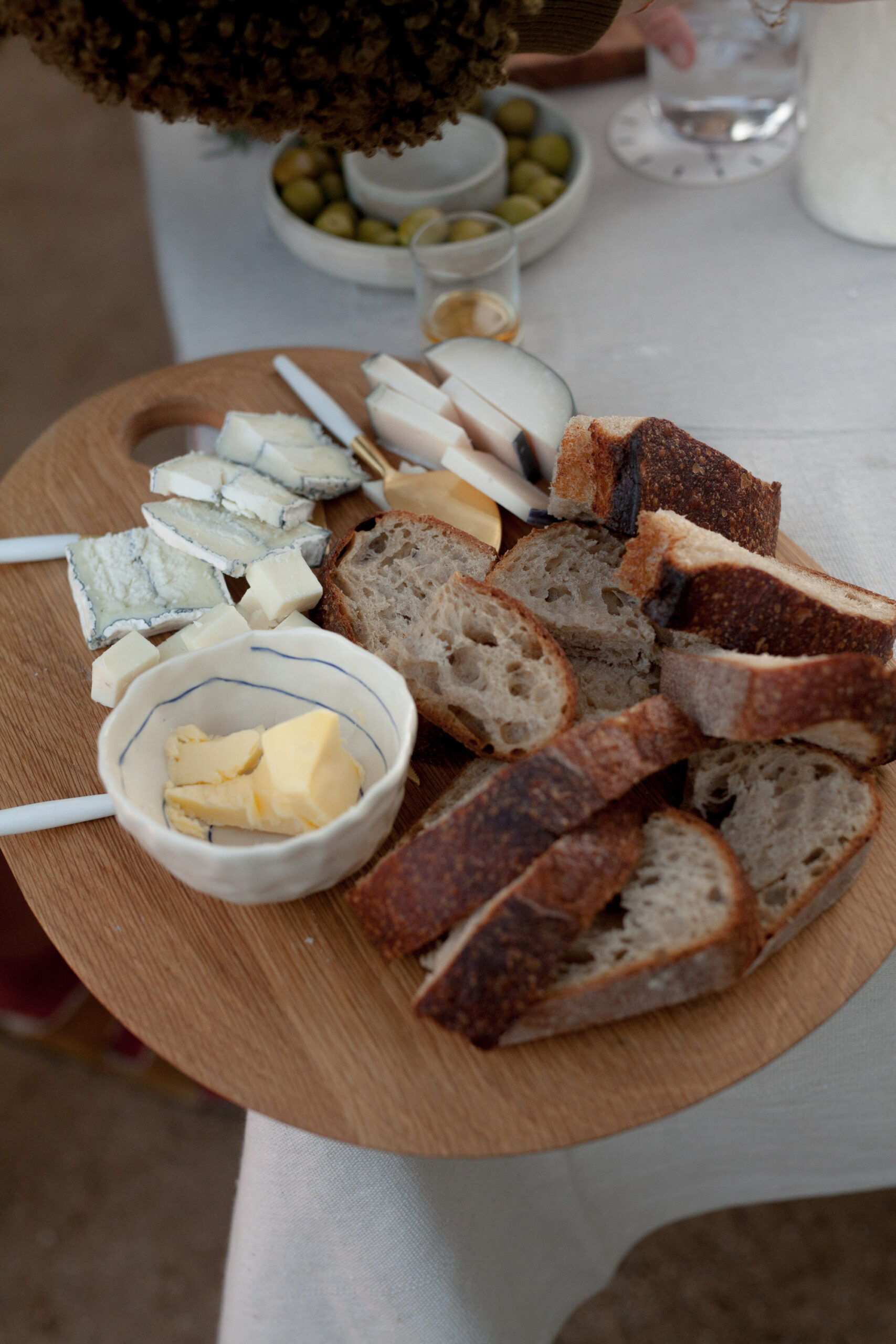How to Stop Boredom Eating (Without Telling Yourself You Can’t Have the Snack)
January 22, 2024

Hey There, I'm Ryann Nicole.
I’m a recovered binge eater who changed the story from something that happened to me to something that happened for me. Now, I’m a licensed therapist teaching you to do the same.
My mission? To help you ditch food stress and live your life with mental peace and freedom every single day!
You’re home, and for once, there’s nothing to do. You’ve already scrolled, double-tapping photos you barely care about. You’ve flicked through Netflix, landing on a random show you don’t even want to watch, letting it hum in the background. And then it hits—the pull toward the kitchen.
The fridge opens, and you stand there, letting the cool air hit your face. You’ve checked these shelves a hundred times, but maybe this time something new will appear? You’re not really hungry, but a snack seems like… something. So you reach for something random, take a few bites, and it’s fine—until suddenly, it’s not. Somewhere between one bite and ten, you hit that line. Staring at the empty plate, you feel that familiar pang: “Why did I just eat all that?”
Why Do We Do It?
You know food doesn’t solve boredom, so why does it feel so hard to stop eating when there’s nothing else to do? Honestly, it’s easier to “do something” than to sit there feeling the stillness, right? When you’ve got no to-do list, no pressing task, and no distractions, it feels like food is a no-brainer—something to fill that uncomfortable quiet.
Humans aren’t naturally great at just being. We crave stimulation, a quick hit of satisfaction. And what’s more accessible than food? Before we know it, eating becomes our “go-to” for filling emptiness. But what if it’s not about boredom eating at all? What if the real issue is our discomfort with stillness? Sitting quietly, with no distractions, might feel awkward or vulnerable, and food feels like a quick fix for that. But here’s the thing: no snack will ever fill that void. Learning to sit with ourselves, to embrace those quiet moments, is how we start feeling full—without food.
How to Stop Boredom Eating
These may not be the steps you want, but they’re the steps you need.
1. Notice the Urge
When you feel that pull toward a snack, pause for a second. Just a quick check-in: “Am I actually hungry, or just looking for something to do?” If the answer is, “just looking for something to do,” it’s okay. No guilt, no judgment. This is purely about noticing what’s going on.
2. Practice Sitting in the Stillness
Instead of going straight to the snack, try just sitting with yourself. No phone, no distractions—just quiet. Let it feel a little awkward or boring. This isn’t about being “good” or “strong.” It’s about building comfort with stillness, even if it’s only for a few minutes. Ask yourself:
• What about this quiet feels uncomfortable?
• What am I trying to avoid or escape from?
• Why does it feel so hard to just sit here with myself?
Take a few breaths, let each urge rise and fall, and notice how each one eventually settles. You may realize the quiet isn’t as overwhelming as it first seems.
3. Find Another Non-Eating Activity (That Isn’t Just a Distraction)
As Brené Brown says, “Boredom is an emotion we feel when something inside us is asking for attention.” Boredom is a craving for something deeper—maybe connection, inspiration, or a spark of joy. Food might give a short-term lift, but it doesn’t address what we’re really after.
Instead, find what’s calling to you. Are you craving mental stimulation, creativity, or a mood boost? Pick up a book, call a friend, go for a walk, or dive into something that feels truly nurturing, not just distracting.
4. Challenge Yourself to Be a Little Uncomfortable
Think of boredom as a muscle. Every time you sit with it, even for a few minutes, you’re building resilience. Each moment you allow yourself to sit with stillness, you’re learning that there’s nothing you need to “fix.” At first, it might feel uncomfortable, but that’s okay! You’re teaching yourself that you don’t need to fill every quiet moment. This practice is the real strength, the freedom to just be.
5. Give Yourself Permission to Eat If You Want To
This isn’t about denial. If you genuinely want a snack, give yourself permission to enjoy it without guilt. But if you notice you’re making trip after trip to the kitchen, try pausing for just a moment. Sit with the feeling, see what’s there. Sometimes, a little space to explore what you’re feeling can be all you need. And if you still want the snack afterward? Go for it—now with a bit more awareness.
Boredom eating isn’t really about the food. It’s about learning to sit with ourselves, to fill the quiet not with food, but with a simple acceptance of the moment. Next time that urge hits, pause, notice, breathe. Because sometimes, the fullness we’re after isn’t in the fridge—it’s already right here, waiting for us to recognize it.
check out the pod
Ways I Can Support You
01 Coaching
Intimate group coaching to break free from binge eating
02 podcast
Real talk on food, mindset shifts, motherhood, and finding peace.
03 support group
A safe space to connect with others on the same journey.
04 free coaching
Have real conversations and hear others share their struggles.
Ryann Nicole
Licensed Therapist, Certified Nutritionist, and Virtual Wellness Coach
Ryann is a licensed therapist and virtual wellness coach who has assisted individuals worldwide in establishing a healthier relationship with food and their bodies.
Are You Ready to Heal Your Relationship With Food?
I understand—it can be overwhelming to figure out where to begin. Let's simplify things and have you start right here:
Why Am I Overeating?
First Steps To Stop Binge Eating
The Ryann Nicole
Podcast
FREE QUIZ
FREE GUIDE
Podcast
the food freedom lab podcast



